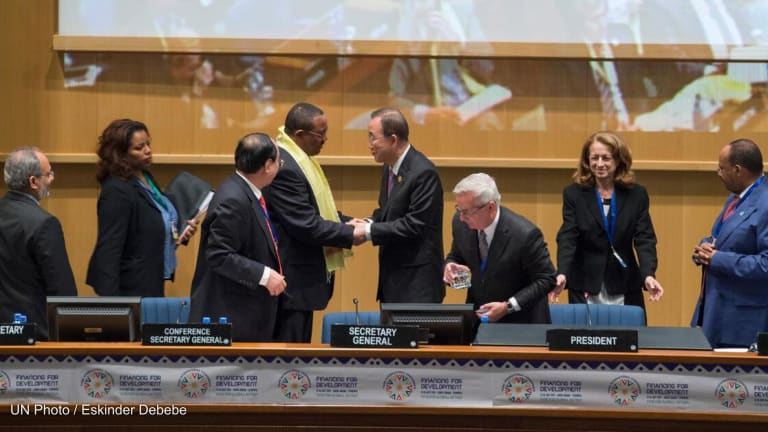
Food insecurity may prove to be the biggest obstacle to the developing world’s long-term economic growth.
That’s why developing countries, especially those vulnerable to food price shocks and shortages, should pursue long-term structural reforms that ensure their citizens have enough food to eat, said the World Bank in its latest Global Economic Prospects report. Such reforms should focus on improving local productivity, storage and transportation infrastructure, cutting spoilage and facilitating access to foreign markets in good and bad times.
The recommendation reflects a growing clamor to improve the resilience of developing countries to crises, whether natural or man-made, internal or external.
“Should local food prices rise markedly, nutrition and health outcomes for the very poor could be hit,” the report states.
For 2013, though, the economic outlook of the developing world is relatively good.
For instance, 10 sub-Saharan African countries are projected to register a growth in gross domestic product of at least 7 percent, including Sierra Leone (11.1 percent — the highest GDP growth rate among developing countries), the Gambia (10.7 percent) and Democratic Republic of Congo (8.2 percent).
China is expected to not do so badly either, with a projected economic growth rate of 8.4 percent. But its peers within the BRICS will probably grow more slowly: Brazil at 3.4 percent, Russia at 3.6 percent, India at 5.8 percent, and South Africa at 2.7 percent.
Haiti, which is slowly recovering from the devastating earthquake which hit the island nation in early 2010, could make a leap this year. According to the World Bank, the Caribbean country’s GDP growth rate could hit 6 percent, compared with 2.2 percent estimated in 2012.
Overall, the World Bank said that the world economy remains fragile, primarily because of the lingering eurozone economic crunch.
As such, the bank urged developing countries to continue engaging in the G-20 process. That way, they could help high-income countries recover from the crisis of 2008-2009 and ensure that reforms in the financial and other markets take fully into account their potential effects on the developing world.
Read our previous DevTrivia.








